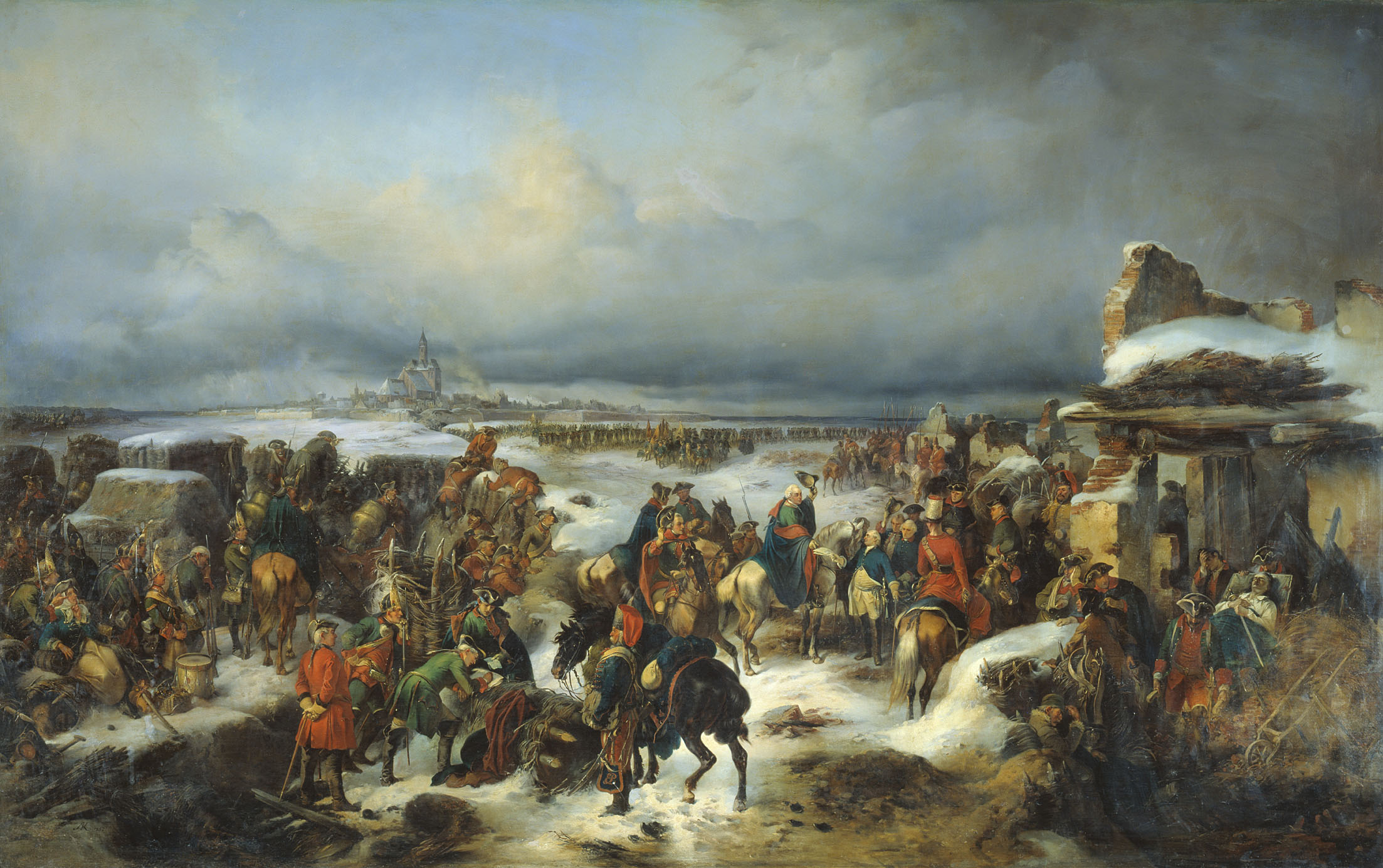 In 1756, Empress Maria Theresa of Austria formed a new alliance with Russia and France in order to recover territories lost to Prussia during the War of Austrian Succession, particularly Silesia. Meanwhile, the British no longer felt that the Austrians could contain French power in Europe. So rather than remain allied with the Austrians they signed a pact with King Frederick II of Prussia in return for his protection of Hanover - the ancestral home of the British royal dynasty - from French aggression.
In 1756, Empress Maria Theresa of Austria formed a new alliance with Russia and France in order to recover territories lost to Prussia during the War of Austrian Succession, particularly Silesia. Meanwhile, the British no longer felt that the Austrians could contain French power in Europe. So rather than remain allied with the Austrians they signed a pact with King Frederick II of Prussia in return for his protection of Hanover - the ancestral home of the British royal dynasty - from French aggression.
Hostilities began when Frederick invaded Saxony, which was allied with the Austrians. The Austrians and their allies - France, Russia, Sardinia, Sweden and the Holy Roman Empire - declared war on Prussia, their German allies and Great Britain. While the Prussian army, which was the most formidable in Europe at that time, fought the Austrian alliance on land, the powerful British navy engaged the allies at sea.
To check British naval power in the Mediterranean, the French captured the British owned island of Minorca. War soon spread around the globe as British and French colonists fought in Africa, Asia and particularly in North America where they had been skirmishing for years. The deployment of British land forces to their colonies resulted in them making substantial gains at the expense of the French expanding their empire around the world.
In Europe, Portugal entered the fray on the side of the British and Prussians, and Spain joined the Austrian alliance. A series of Prussian defeats brought Frederick to the brink of disaster, especially when the British threatened to withdraw their financial aid. Fortunately for him, in 1762 the Russian Empress Elizabeth died. Her successor, Peter III , who was more friendly to the Prussians immediately withdrew his troops from the war and helped negotiate a peace between Frederick and the Swedes. Having lost an important ally and facing a reverse of fortunes on the battlefield, the Austrians had little choice but to negotiate a peace.
War weariness in Britain contributed to King George III's removal of the Duke of Newcastle's government and the resultant peace negotiations with France. On 10th February 1763, representatives of France, Great Britain, Spain and Portugal signed the Treaty of Paris, ending the conflict that is known as the Seven Years War in Europe, and the French and Indian War in America. The Treaty required a complex exchange of territories between the powers. The French had the choice of keeping either New France (Canada) or Guadeloupe in the Caribbean. They chose to keep the latter as a supply of sugar, but they also had to return Minorca to the British. The British also gained Florida from the Spanish, who received New Orleans and the western part of Louisiana from the French.
The text of the "Treaty of Paris (1763)" is available on the Yale Law School's Avalon Project web site.
Related posts
British Parliament expelled John Wilkes: 19th January 1764
Battle of Leuthen: 5th December 1757
Louisiana Purchase Treaty signed: 30th April 1803
Customised search for historical information
10 February 2010
On this day in history: Treaty of Paris signed, 1763
Labels:
C18th,
Colonialism,
France,
Military,
Politics
Subscribe to:
Post Comments (Atom)















0 comments:
Post a Comment